ScreenAnarchy Best of 2012: My 2012 - The ScreenAnarchy Writers Look Back At The Year
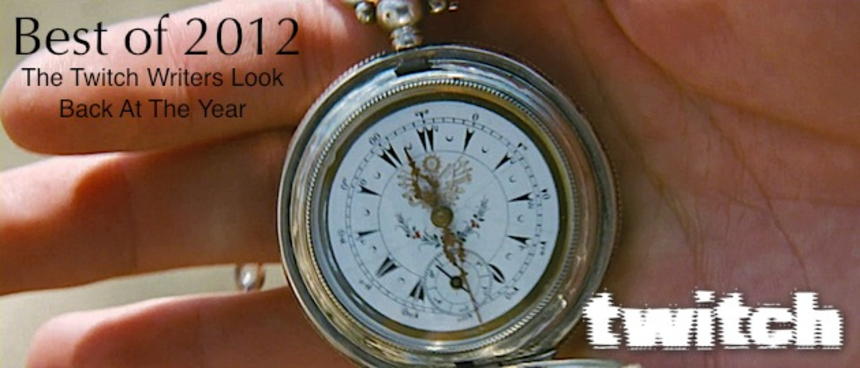
In 2012, the ScreenAnarchy family has grown even more global. With a line-up of contributors that stretches right around the planet, we've had the means to see a huge proportion of the new films that have emerged in the past 12 months from some of the world's most far-flung regions - and we want to tell you all about them! Whether they be the ones we love, the ones we hate, or all those that fall somewhere in between, we want to share.
So enjoy the ScreenAnarchy Writer's Look Back At The Year!
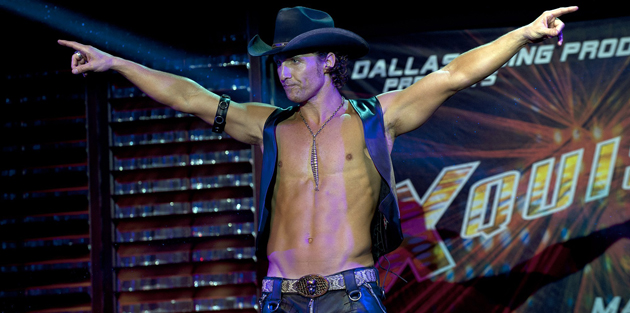
Joshua Chaplinsky - Contributing Writer
2012 belonged to one man and one man only: Matthew McConaughey. With four new films released this year, we truly are going through a McConaissance. We're not talking the false recognition of Lacanian psychoanalysis here, this recognition is well-deserved. From Killer Joe to killer abs to an Oscar-worthy performance in Magic Mike - the man is on fire. And it doesn't look like he's going to stop, what with The Wolf of Wall Street and Dallas Buyers Club coming out in 2013. Alright, alright, Mr. McConaughey. Alright, alright.
Kwenton Bellette - Contributing Writer
2012 was an incredible year for film. I had 20 titles as top 2012 contenders that I found impossible to reduce, and this excludes documentaries! It is slightly unfortunate that I have so many big 2012 films still to see (some will bleed into 2013). ScreenAnarchy and its make-over has been going so strong with incredible 'breaking' content and exclusives, the team is as ever very supportive and the regular articles each week are fascinating reads, in particular Jason Gorber's Cineruminations.
I cannot wait to read my colleagues' best-ofs, particularly James Marsh's and the slew of Asian titles I've not yet seen. I look forward to working with everyone on fun projects in 2013!
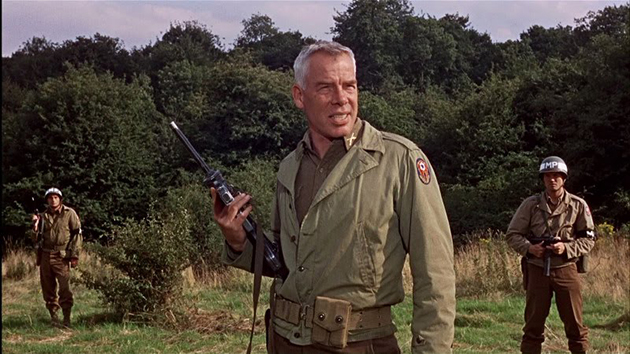
Brian Clark - European Editor
This is the end of my first year working for ScreenAnarchy. It's been a good year! Readers and commentators on this site are much nicer than other websites I've written for in the past, and usually more intelligent too. I appreciate that. It's also been a pleasure to get to know the staff, whose commitment still puts me in awe. What makes me the happiest though, is that I've gotten the chance to champion smaller and more obscure films that need the word-of-mouth. It's nice to know that an audience exists for a site that puts tiny art films, foreign genre films and huge blockbusters all on the same level and more importantly, that people are still interested in discovering new talents and new types of Cinema. Keep the fight alive!
As for 2012, I don't really want to clutter the Internet with another think piece about trends or patterns in the film industry this year. Instead, since I spend most of my free time in the repertory theaters of Paris, I'd like to to share my top three classic film discoveries from the cramped theaters in the Latin Quarter.
1. Every film by Robert Aldrich, especially The Legend of Lyla Clare, Attack!, and The Dirty Dozen. If there's a heaven, Aldrich better be there.
2. The Set-Up - A bleak, intense film noir drama with Robert Ryan as a down-and-out boxer. Efficient and heart-breaking.
3. Cluny Brown - Ernst Lubitsch's penultimate film is, not surprisingly, hilarious, romantic and brilliant. As a bonus, Jennifer Jones has never been more charming. I saw the film on New Year's Day 2012, which I strongly recommend if you're looking for a way to start the year on a happy note.
Pierce Conran - Contributing Writer
Given the year I've had, I'm not sure I can offer any insight on the shape of the global film industry. My move to Korea six months ago, not to mention my new job with the Korean Film Council, have contributed to a cinematic diet weighted heavily towards this country. Regarding the Korean film industry I can say that it's been a huge year. Box office records were smashed, the local market share was gigantic and Korean films have won a plethora of major awards on the international festival circuit. However, I do have a slight worry that the growing success of commercial Cinema will only spur on the conglomerates, which control production, distribution and exhibition (reminiscent of the vertically integrated system of classic Hollywood), to further favor formula over substance and the auteur-driven works that led the industry a decade ago. Yet with Korea's big guns about to unveil a slew of English-language debuts, 2013 looks to be another landmark year for Korean cinema.
Jason Gorber - Contributing Writer
Last December I had my first review posted at ScreenAnarchy (coincidentally, the film that ended up being my fav of 2011 - Tinker, Tailor, Soldier, Spy, and since then I've had quite a wild ride. I've done more in the last year than in the last two decades, thanks to a community of fellow writers that have been tremendously encouraging and supportive.
In terms of movies, it's a year where I didn't get a Coen or a Von Trier flick, but we did get a slew that I'm sure I'll love for years. I also can't forget 2012 was the year when the most shocking news was the announcement of new Star Wars movies, so we'll see how that will all play out over the decade to come.
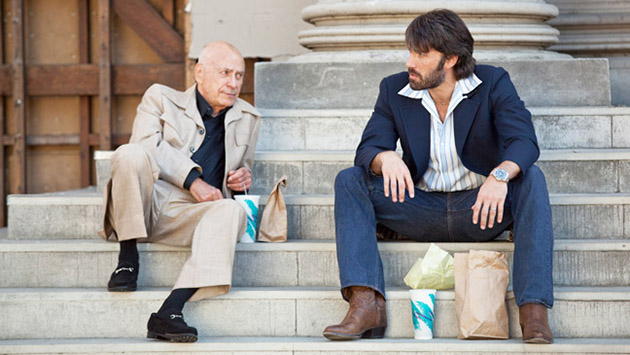
Peter Gutiérrez - Contributing Writer
It's simple, really: my 2012 all comes back to Argo. By that I mean it should win the Oscar... if one assumes that "Best Picture" goes to the most representative, most emblematic film of the year, which it doesn't and no one believes should except me.
But on a more serious note, one reason I think Argo struck a chord in movie culture is that it acts as a kind of textual hub for so many of the year's most-talked-about films. On the level of subject matter alone, Argo was one of three big late-year releases that centered on the intelligence community, the other two being Skyfall and Zero Dark Thirty. Specifically, each film asks, and answers differently, the question, "What does the concept of 'the heroic' mean in the context of spying?" Does it mean the willingness to descend into the role of torturer - or the willingness to be tortured or sacrificed? And in either case is it possible to be a hero if no one in the outside world actually knows what you've done? (Of course there's no overt torture in Argo, but that just shows that the topic is an offshoot of its content, don't you see?)
Argo also enjoys a striking kinship with Holy Motors and This Is Not A Film. The former connects to Argo via the theme of the grand deception that is the movies; in both films we're complicit in the fun, and the suspense or comedy derives from the extent to which the secondary, oppositional characters are not. The most dialectical relationship exists between Argo and This Is Not A Film: one's about pretending to make a movie, the other, about pretending not to. The fact that both are set in Iran should further please everyone's sense of intellectual neatness.

Kurt Halfyard - Contributing Writer
There was an alarming focus on film format this year. The Master's 70mm revival, Prometheus' 3D cinematography, The Dark Knight Rises' IMAX presentation and The Hobbit's High Frame Rate. It was also the first year where less than 10% of the films I saw in first run were on 35mm film. And Keanu Reeves hosted the documentary Side by Side on digital vs. analogue filmmaking. I find it rather distressing that so much film conversation was devoted to the tech side of things and too little on the film side of things, but we are certainly in flux early into this century.
In a continually crumbling world economy and a new-normal promising probable/perpetual economic uncertainty (Cosmopolis and The Dark Knight Rises can share the "timely" trophy for their varied takes on the Occupy movement and its fallout!) a silver lining is a refreshing return to angry noir pictures, of which there were three exceptional ones released in 2012: The Paper Boy, Killer Joe and Killing Them Softly. Science Fiction even put its noirish trench coat back on, with Rian Johnson's Looper (amongst other genres). It should also be noted there were two excellent noir-farces based on Jo Nesbø stories, Headhunters was released in the multiplexes and Jackpot on the festival circuit.
Lastly, the documentary form continued to mutate this year with Mads Brugger's maniacal quest for blood diamonds in the Central African Republic in The Ambassador, Bart Layton's manipulative and cinematic re-enactment of a kidnapping cold-case in The Imposter, as well as the Harvard anthropology thesis Leviathan, a film which put tiny cameras everywhere on a commercial fishing vessel and discombobulated viewers with its damp squishiness and elegiac flight of fancy.
James Marsh - Asian Editor
It was a big year for Cinema. Digital took over and the medium seemed to stand up and take notice. My favourite films of the year - The Master and Holy Motors - essentially showed Cinema taking a long hard look at itself in the mirror, trying desperately to convince itself that it is still sexy. Sadly, not everyone was paying attention, and the opportunity to see movies on the big screen on film is becoming the cinematic equivalent of lamenting the waning popularity of vinyl. Closer to home, it was another record-breaking year for Chinese Cinema at the domestic box office - a phenomenon that is likely to continue happening as the local industry continues to thrive and expand. We also saw the first major US/Chinese co-production get underway, in the form of Marvel/DMG's Iron Man 3. Again, something that is only going to become more prevalent as China steadily positions itself as the World's sole remaining super power.
It was also a big year for my own appreciation and consumption of Cinema - travelling to festivals in various parts of Asia, as well as the UK and North America - and meeting a rich diversity of individuals who all came together through their shared appreciation of film (and more often than not, drinking and karaoke). I was lucky enough to meet a number of the ScreenAnarchy collective for the first time - Pierce Conran, Rachel Fox, Eric Snider, Shelagh Rowan-Legg, Joshua Chaplinsky, Kwenton Bellette - while reuniting with many others. For a network of writers that spans the entire planet, it's not always an easy thing to accomplish, but invariably makes for a momentous occasion. Here's to many more in 2013.
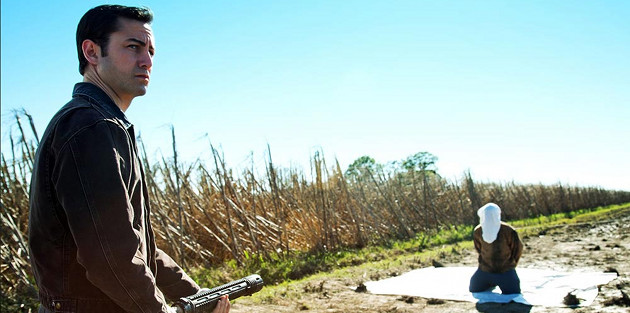
Shelagh M. Rowan-Legg - Contributor
This is the year that science fiction and the surreal (both separately and together) seem to be making a comeback. From Extraterrestrial to Looper, sci-fi is finally back on the scene, and is not afraid to get weird. While this is seen in larger, high-concept scenarios, it can also be seen in intimate films (such as Vanishing Waves and Sound of my Voice). Also, and this might just be the films I see, but the narratives are getting smarter, and are unafraid to steer clear of the traditional classical formula, in favour of a more disjointed story (such as Holy Motors and The Master). While it's hard to avoid dumb blockbusters, and they will still likely rule at the box office, more and more audiences are favouring films that challenge their mental processes. We know the Hollywood formula by heart; we need and are ready for change.
Ben Umstead - East Coast Editor
2012 marks my fourth year at ScreenAnarchy. It has been an absolute pleasure to watch the site grow into the behemoth it is today. Despite its size, what really pleases me is how tight-knit we are as a community of film enthusiasts. I've met only a handful of my colleagues, but I consider everyone here a friend. I look forward to where 2013 will take all of us at ScreenAnarchy. As for me personally, I was very humbled when, last fall, I was asked to join the editorial staff. It's been a great learning experience and I thank my fellow editors for their support. As for the films themselves, well... as I am sure it is with all of you, some of the most important films one sees during the year are older flicks: classics to catch, hidden gems, waves, eras and directors to snuggle up to. In this regard 2012 was a watershed year. My favorite theatrical outing was last spring at Brooklyn's reRun Gastropub cinema for a screening of Vera Chytilova's Daisies - a personal fave, made all the better with a little whisky! The Czech New Wave is not to be totally outdone by my current obsession with films from the Berlin School. Angela Schanelec's 1998 film Places In Cities was the single best film I saw in 2012. I encourage any curious souls out there to take the time to track it down. Well worth it for fans of minimalist, adolescent drama. Interviewing Barbara actress Nina Hoss was also a highlight.
Now a word of advice: If you ever find yourself having a bite to eat with the creators of the deconstructionist horror film Resolution, order the biggest plate of chicken wings you possibly can. Co-director Aaron Moorhead eats a lot.

Ard Vijn - Contributing Writer
For me, 2012 was a year where I felt a strange disconnect between me and Cinema in general. I love both the big blockbusters and the happy obscure discoveries alike, but with distribution channels being what they are it's becoming quite difficult to catch it all. The big cinema chains seem ever more desperate in their programming, while the smaller ones cannot always cater to their market. The future of films on discs, as a viable release platform be it DVD or Blu-ray, is openly questioned as well. And technological changes seem to have ended 35mm as we know it: undoubtedly the end of an era. Whatever the reason, my top 10 this year contains some films which I feel wouldn't have made the cut in other years. Are films losing their allure for me? I hope not.
On the other hand, in 2012 I managed to interview two of my longtime heroes: Miike Takashi and Tsukamoto Shinya. I visited my first film set and got quoted in a theatrically shown movie trailer (yes, I'm vain enough to call that a major event). I felt more interested in the production side of Cinema than ever before, even though the end results generally didn't exalt me much.







